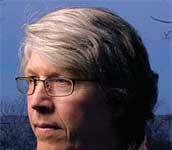
You can find the US Copyright Office’s report here (pdf). It lists as priorities orphan works, mass book digitization and streamlining registration.
Copyright Clearance Center (CCC) welcomes the announcement today by the U.S. Register of Copyrights, Maria Pallante, of her priorities for the next two years.
Copyright industries are a critical part of the US and global economies. Advances in technology are accelerating options for creating, distributing, consuming, sharing and preserving content while globally, laws have not kept pace with technology advances. For more than 20 years, the important principle of copyright which protects the work of authors and creators has faced increasing turmoil. We regularly see news of litigation such as music file sharing cases and most recently around the Google Book Search case. Technology has driven other developments such as eBooks and the growth of “user-generated” content in the digital environment.
There is an urgent need for legislative solutions to address our most challenging copyright issues. Issues ranging from clarifying the use of Orphan Works (works where the copyright holder cannot be located) to streamlining registration for groups of copyrighted works to addressing mass digitization of books.
“These two years will see continued developments in technology, content creation and dissemination. Register Pallante’s priorities indicate that the government is interested in ensuring that the US retains its leadership position with contemporary policies reflecting the evolving use of content while encouraging creators and publishers to develop new content and new licensing and delivery mechanisms to serve their readers and customers,” said Tracey Armstrong, CCC’s president and CEO. “Register Pallante has hit the ground running in her new role as head of the Copyright Office, and is already making clear her intention to carry forward the strong leadership that has been the hallmark of the Office for decades. We support this agenda and encourage the US Congress to consider the issues with urgency as recommendations are created. Copyright Clearance Center remains ready to engage to create meaningful solutions for the market.”
CCC actively engages both the Register and her staff on issues such as orphan works, mass digitization of content, the effects of different copyright rules around the world and the promotion of licensing as a solution for the needs of both copyright users and rightsholders. “We look forward to working with Register Pallante on all of these issues and hope to be able to assist the Copyright Office in its evaluation of licensing opportunities in the US, ranging from repertory and pay-per-use models to concepts new to the US such as extended collective licensing.” said Armstrong.






























So much of this would be unnecessary if we simply confined the duration of copyright to the life of the author. As Andrew Carnegie argued, heirs should stand on their own two feet.
Carnegie was one of the richest men in America who made his money using wage slaves and built his libraries as part of his attempt to wash some of the blood off his hands from a labor strike that killed a lot of people.
Most authors don’t make a living from what they do, and their heirs don’t make that much either, but they do protect the author’s legacy. With the advent of ebooks and other markets, some authors and their heirs actually have an opportunity to make more than the pittance they did. Good for them.
Keeping the legacy of many of the great writers of the Twentieth Century free of having zombies inserted in their books, good for everybody.
Casting aspersions on the motives of persons long dead and unable to reply is bad form. There is little or no historical evidence to support the assertion that Carnegie felt any guilt about the way he developed and sold U.S. Steel. The point is that he felt that each generation has to earn its own way. He said so. Thus, he gave most of his money away and libraries were the most significant benefactors. His heirs benefitted little.
And you will be giving anything left to you by your parents to charity? Yeah, right.
Carnegie was a Robber Baron who made modern day Wall Street types look like saints, and I just watched a portion of a decent documentary which included an interview with one of librarians of one of his libraries who said that he built them partly as atonement for the massacre of his workers.
You should really read some history, or at least, a Wikipedia article on the man before you defend him and those like him.
And, as I said, copyright owners rarely make much in their lifetimes, and what little that can come afterward deservedly belongs to the heirs. We are not talking the massive wealth of a Carnegie here.
And the heirs deserve the right to protect the author’s legacy with copyright ownership. To many of us, that’s of considerably more value than the pittance royalties will bring.